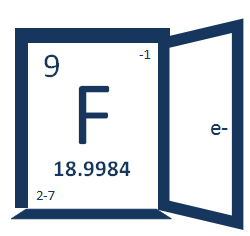warning: asking hard questions drives the scientific method ...
And our mission at Fluoride Exposed

Respect, understanding, compassion, listening – they're vital to communication.
We outlined how much we value science communication that uses respect, understanding, compassion, and listening in our article Why we don't call people with questions about fluoride anti-science: our approach to science communication at Fluoride Exposed ...
... however ...
Criticism is vital to science.
So although we are all about genuine kumbayas and coming together to hold hands in peace and understanding ... be warned ...
We will critique both science and pseudoscience
Criticism - noun
1. the practice of judging the merits and faults of something. (from Wikipedia)
Inquiry – noun
1. the act of asking questions in order to gather or collect information.
(from Merriam-Webster)
In science, we kick the tires on everything. Critical thinking, having one's ideas criticized, criticizing your own ideas, criticizing others' ideas, welcoming critics who are questioning in good faith – science runs on respectful criticism and responding to that criticism.
To really feel at home in the halls of science, we've got to embrace inquiry. We need to ask questions. And we need to be asked questions. Tough questions.
"The first principle is that you must not fool yourself, and you are the easiest person to fool."Richard Feynman
Questions like ...
- Why is that?
- What evidence do we have?
- How good is that evidence?
- How can we test it?
- What are the strengths and weaknesses?
- How do we know?
These scientific questions are just the tip of the iceberg, and you not only ask them about others' ideas and information. You ask them of your own ideas and information first.
So we will be asking lots of questions here. We will ask hard questions when we look at science, and we will be asking hard questions when we look at pseudoscience.
"He wanted to know about science. It's just that all the science got filtered out before it reached him. What society permitted to trickle through was mainly pretense and confusion. And it had never taught him how to distinguish real science from the cheap imitation."Carl Sagan
That all means that we won't sugar coat pseudoscience or bad science. As we develop Fluoride Exposed further, we will critique both pseudoscience and bad science ... and good science, too ... and we'll help you assess them critically as well. We'll do that whether the bad information comes from fluoridation supporters or fluoridation detractors.
Because we know that you are after the real thing. The bona fide facts. The genuine scientific methods in each field.
We won't rest if there is sloppy thinking.
Now, everyone can have sloppy thinking. It's the human condition to make mistakes. The thing about sloppy thinking, though, is it can lead to sliding down a garbage chute and landing in a dumpster – outside the halls of science.
If that happens, we'll come running and extend a hand to help you out. If we slide down a bad science chute ourselves, we're gonna call for help, climb out as quick as we can, and analyze our missteps in getting there. On the other hand, if you think you've found a treasure there amongst the trash, we'll climb in and help test whether it's genuine.
But we still want to spend most of our time inside the building. Because that's where the most amazing stuff is. The most amazing science stuff is not in what science has thrown out.
Two examples of our philosophy for exploring at Fluoride Exposed ...
It is not enough to know that CDC named fluoride in water as one of the nation's ten great public health achievements in the 20th century. Exploring the halls of science through fluoride means exploring all the whos, whats, whys, and hows of CDC's ten great public health achievements.
- Why did CDC judge fluoridation to be in the top ten?
- Who are the CDC? Why would you pay attention to what they say?
- What are the other top ten?
- Where did they say this?
- Where can you read what they said for yourself?
- Who are the people who did the research?
- What are their credentials and experience for doing that research?
- What are the connections between fluoride and the other top ten?
Likewise, it is not enough to know that every Surgeon General has judged fluoridation to be safe and effective for the past 50 years. Exploring the halls of science through fluoride means exploring all the whos, whats, whys, and hows of Surgeon Generals and their role in fluoride.
- Why do Surgeon Generals come to this position on the safety and effectiveness of fluoride?
- How do they decide this position?
- Where can you read about it yourself?
- Who is the Surgeon General?
- What are their credentials and experience?
- How does the Surgeon General office operate?
- What is the history of the Surgeon General office?
- Where have they been and where are they going?
So we will be talking a lot about fluoride – because, hey, we're Fluoride Exposed – buuut ... we will also be talking a lot about things that aren't strictly fluoride. Things like CDC's inner workings, other public health measures, and Surgeon General history.
We are going to go deep into bodies of knowledge, and disciplines, and organizations, and concepts that swirl around fluoride but aren't fluoride themselves ... because we know that you have questions and concerns and things you want to learn about all of it.
Do you also still want to learn more about our goals and motivations and values and philosophies about running this site?
Because we've got lots of options for all that, too. You can read up on:
Or you could go back to ...
Or you could ...
Read on for HOW ALL THIS WORKS
Or go back to WHAT WE'RE DOING HERE AND WHY
